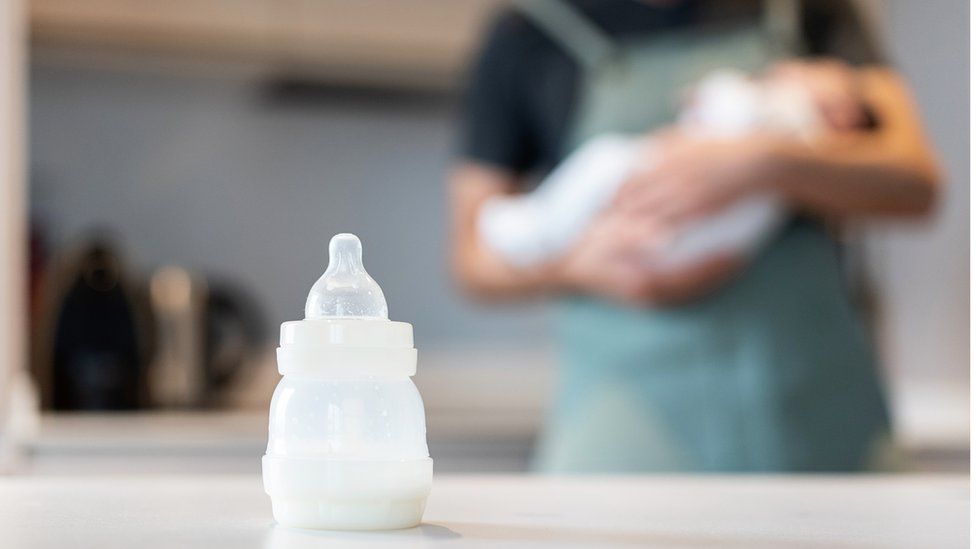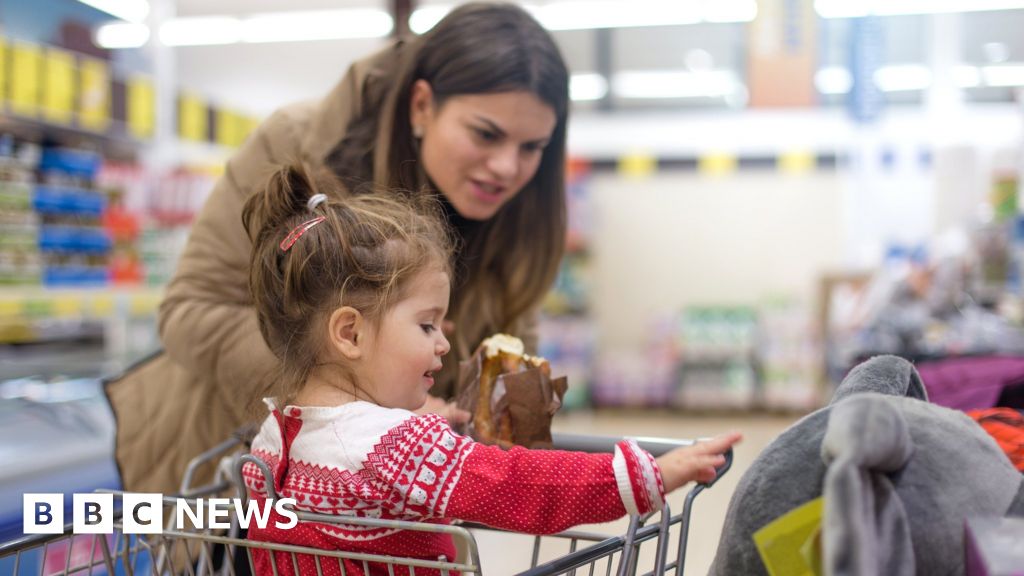 Image source, Getty Images
Image source, Getty Images
By Tom Espiner
Business reporter, BBC News
Makers of some popular food brands have raised prices by more than their costs over the past two years, according to the UK's competition watchdog.
This has helped push up the price of things like baby formula, the Competition & Markets Authority (CMA) said.
About three quarters of branded suppliers have been making more profit on individual products.
But food firms said they had done all they could to absorb higher costs.
The findings are part of an analysis of pricing in 10 categories, including milk, baked beans and pet food.
High food price inflation has mainly been driven by rising energy and fertiliser costs, the CMA said.
But makers of most branded food items in the 10 categories have been putting prices up by more than their costs and "in doing so, have contributed to higher food price inflation", it added.
As a result shoppers have increasingly turned to own-label products, meaning branded products have lost market share, and so have actually been making less money.
But in the case of baby formula there are not many alternatives, and prices have risen by a quarter over the past two years. Profits on these products have been high.
New parents could make significant savings of £500 in the first year of a baby's life on baby formula by shopping around, the CMA added.
Cheaper formula still needs to follow rules on providing the nutrients babies need, it said.
But the market is dominated by two big players, and there is little evidence of parents switching to cheaper alternatives.
"We're concerned that parents may not always have the right information to make informed choices and that suppliers may not have strong incentives to offer infant formula at competitive prices," said Sarah Cardell, chief executive of the CMA.
She added that the pace of food price rises, which was running at more than 10% in October, "has put huge strain on household budgets".
Industry group the Food and Drink Federation said manufacturers had absorbed costs to try to shield consumers from higher prices.
"However, with inflation hitting a 40-year high earlier this year, some price rises have been unavoidable," said Karen Betts, its chief executive.
The watchdog will probe the baby formula market further, and will also look at supermarket loyalty card schemes.
Some supermarkets have only been making cheaper prices available to customers on loyalty card schemes, and the watchdog will look at this practice in 2024.
In September, consumer group Which? warned that loyalty card schemes were not as good as they seem, with supermarkets Tesco and Sainsbury's increasing the prices of everyday items so the discounts for people with loyalty cards looked bigger than they really were.
However, both supermarkets rejected the claims.

 Movie
Movie 5 months ago
131
5 months ago
131 






![Presidents Day Weekend Car Sales [2021 Edition] Presidents Day Weekend Car Sales [2021 Edition]](https://www.findthebestcarprice.com/wp-content/uploads/Presidents-Day-Weekend-car-sales.jpg)



 English (United States)
English (United States)